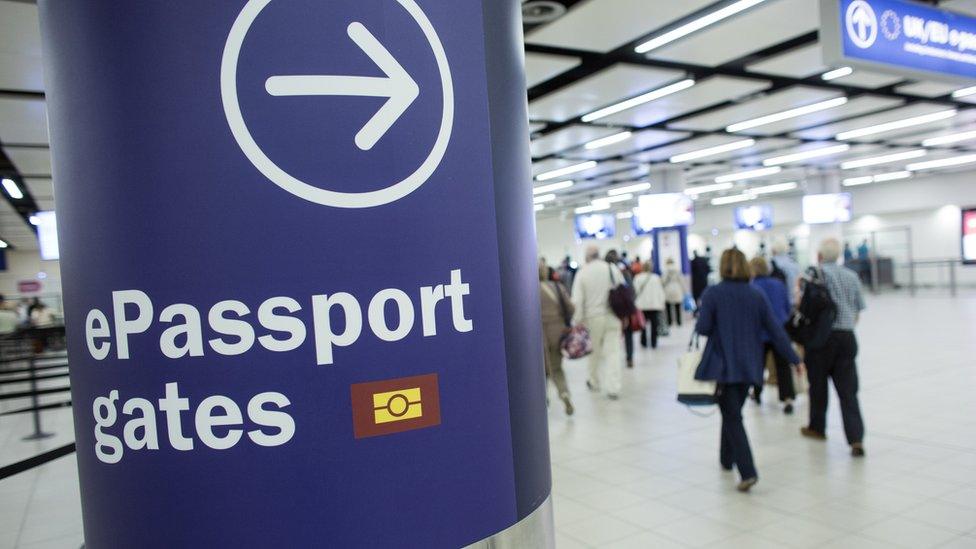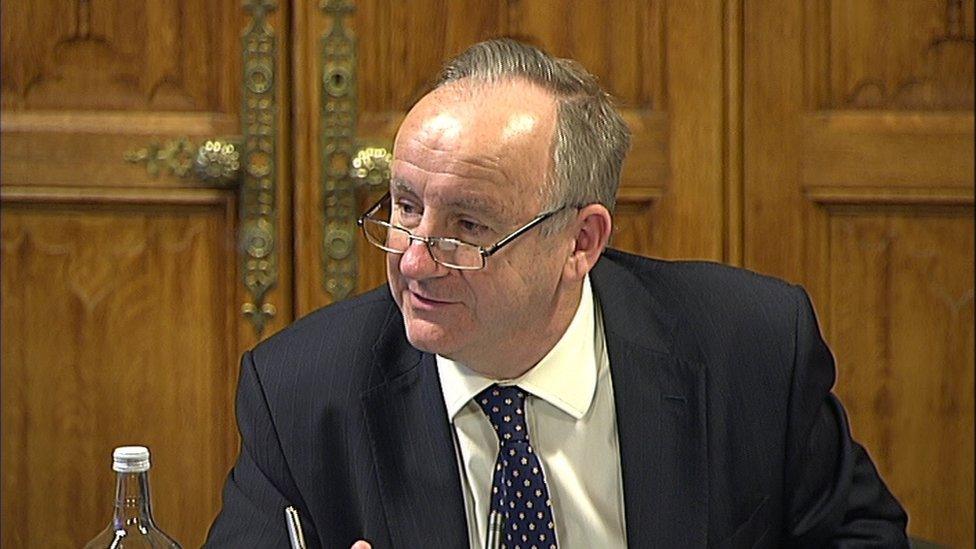EU referendum: Leave vote could lead to strengthened border checks, says NI affairs committee
- Published

The NI Affairs Committee said screening already carried out by some airlines flying between Northern Ireland and the rest of the UK may be made more robust
Identity checks at borders between the island of Ireland and Great Britain could be strengthened after a UK exit from the EU, some MPs have said.
The Northern Ireland affairs committee said screening by some airlines flying between Northern Ireland and the rest of the UK may be made more robust.
It also said it could be extended to passengers at ferry ports like Holyhead in Wales and Stranraer in Scotland.
The committee comprises MPs who support both the Leave and Remain campaigns.
It warned that imposing controls at the soft land boundary between Northern Ireland and the Republic of Ireland, crossed by up to 30,000 commuters a day for work, would cause considerable disruption.
Extended
"An alternative solution might be to strengthen the border between the island of Ireland and the British mainland," the Westminster committee said in a report entitled Northern Ireland and the EU Referendum.
"There are fewer crossing points to enforce and it would be less disruptive as there are already checks in place.
"Some airlines flying between Northern Ireland and the rest of the UK already subject passengers to identity checks and these could be made more robust and extended to relevant ports such as Holyhead and Stranraer with relative ease."

Laurence Robertson said the committee was not trying to promote either side of the EU debate
The report said there are nearly 300 formal and many informal crossing points between Northern Ireland and the Republic of Ireland.
The Northern Ireland Office (NIO) has already warned arrangements guaranteeing free movement of people and goods with the Republic of Ireland could be threatened by a so-called Brexit, a UK withdrawal from the EU.
Negotiations
The Northern Ireland affairs committee report also identified the potential impact of a Brexit in key areas like the economy and agriculture.
It said: "In the event of a vote to leave the EU, it is imperative that Northern Ireland's economic priorities, such as gaining a good deal for agricultural and manufactured goods, are given due prominence by the UK government in any subsequent negotiations.
"However, the likelihood of this cannot be guaranteed."
Committee chairman Laurence Robertson said: "Our intention was not to promote either argument - we have MPs on the committee from both camps - but to indicate what the significant effects of leaving the EU could be, what outcomes we can be sure of, and what we do not know."
- Published30 December 2020
